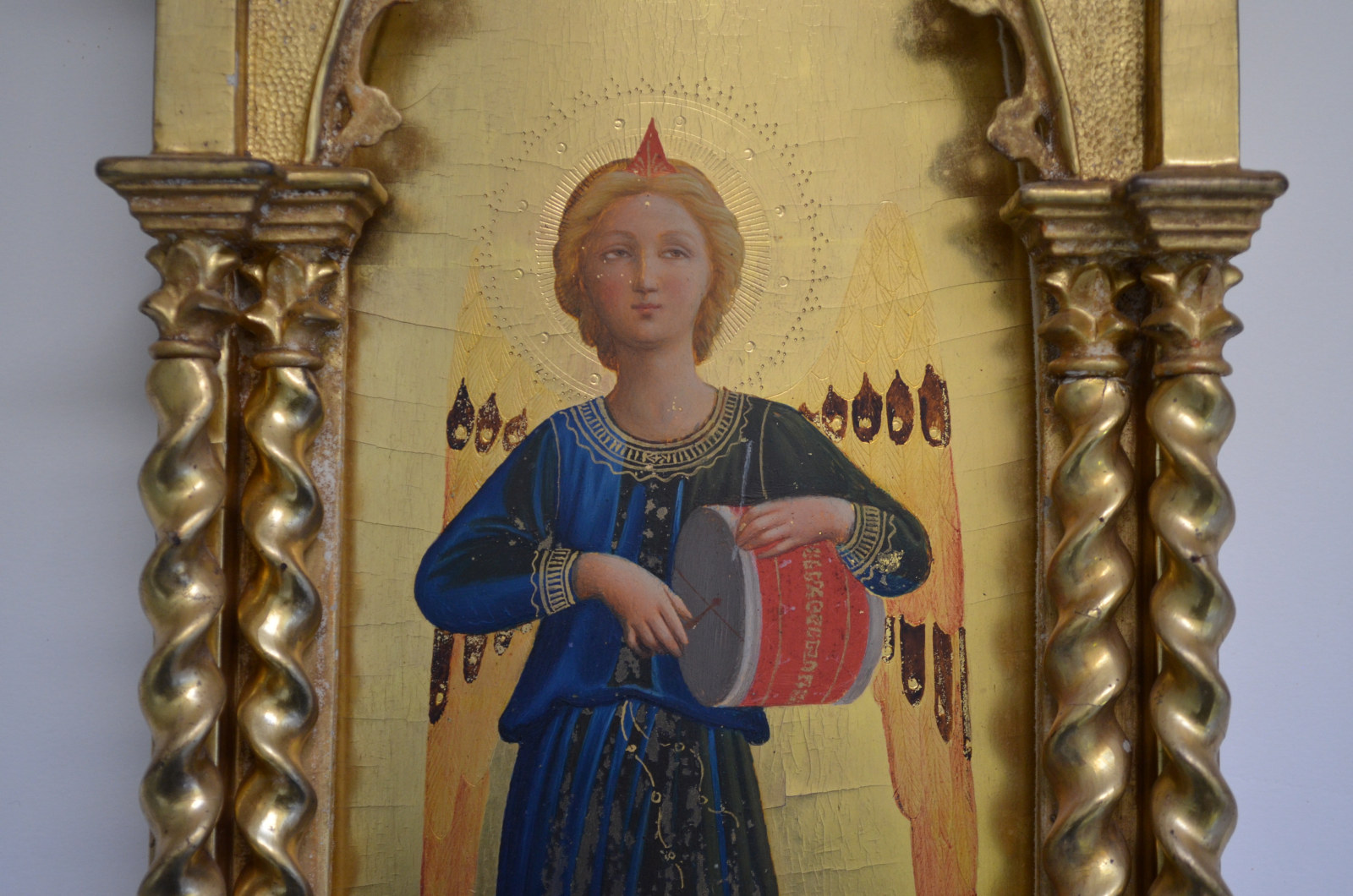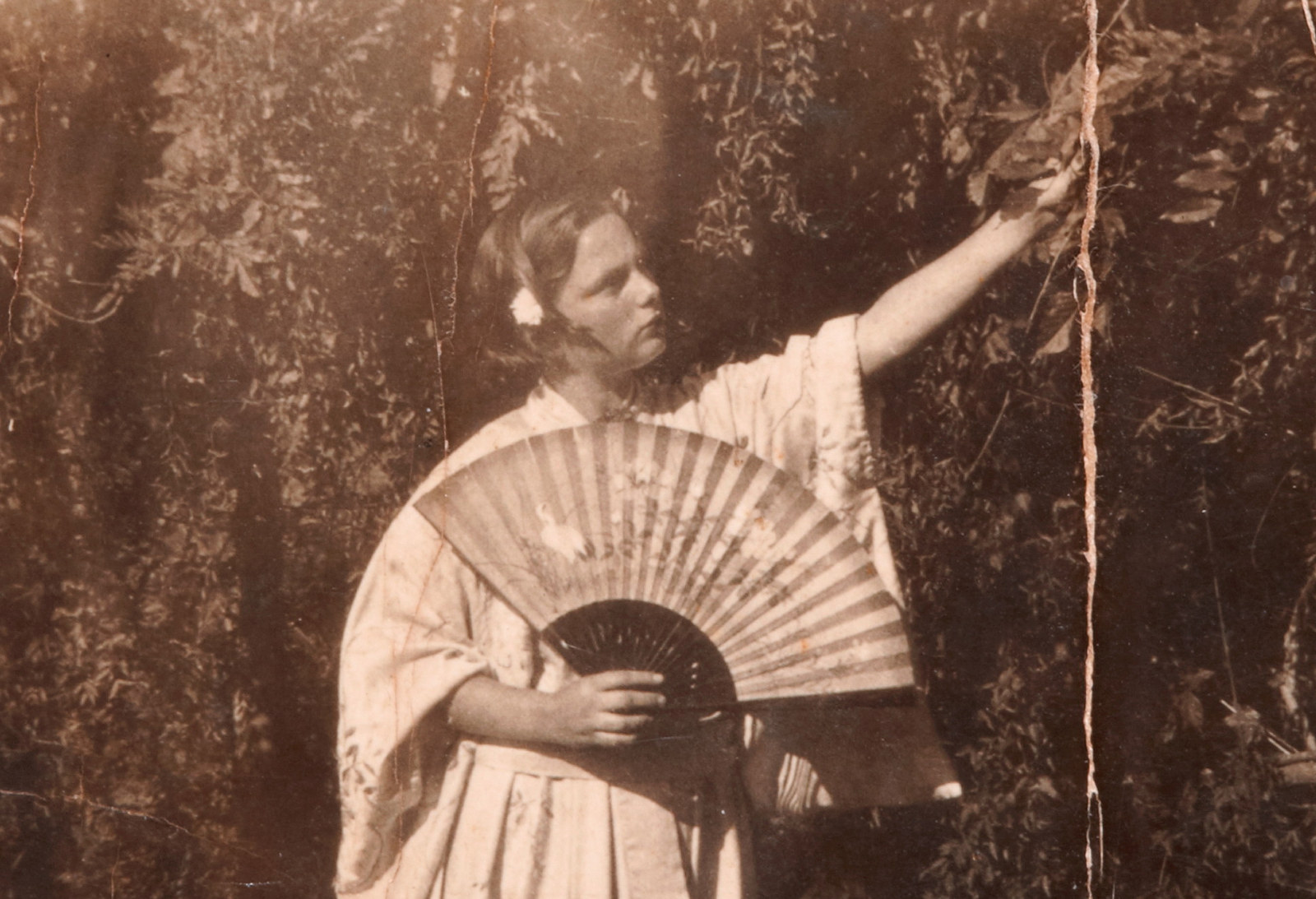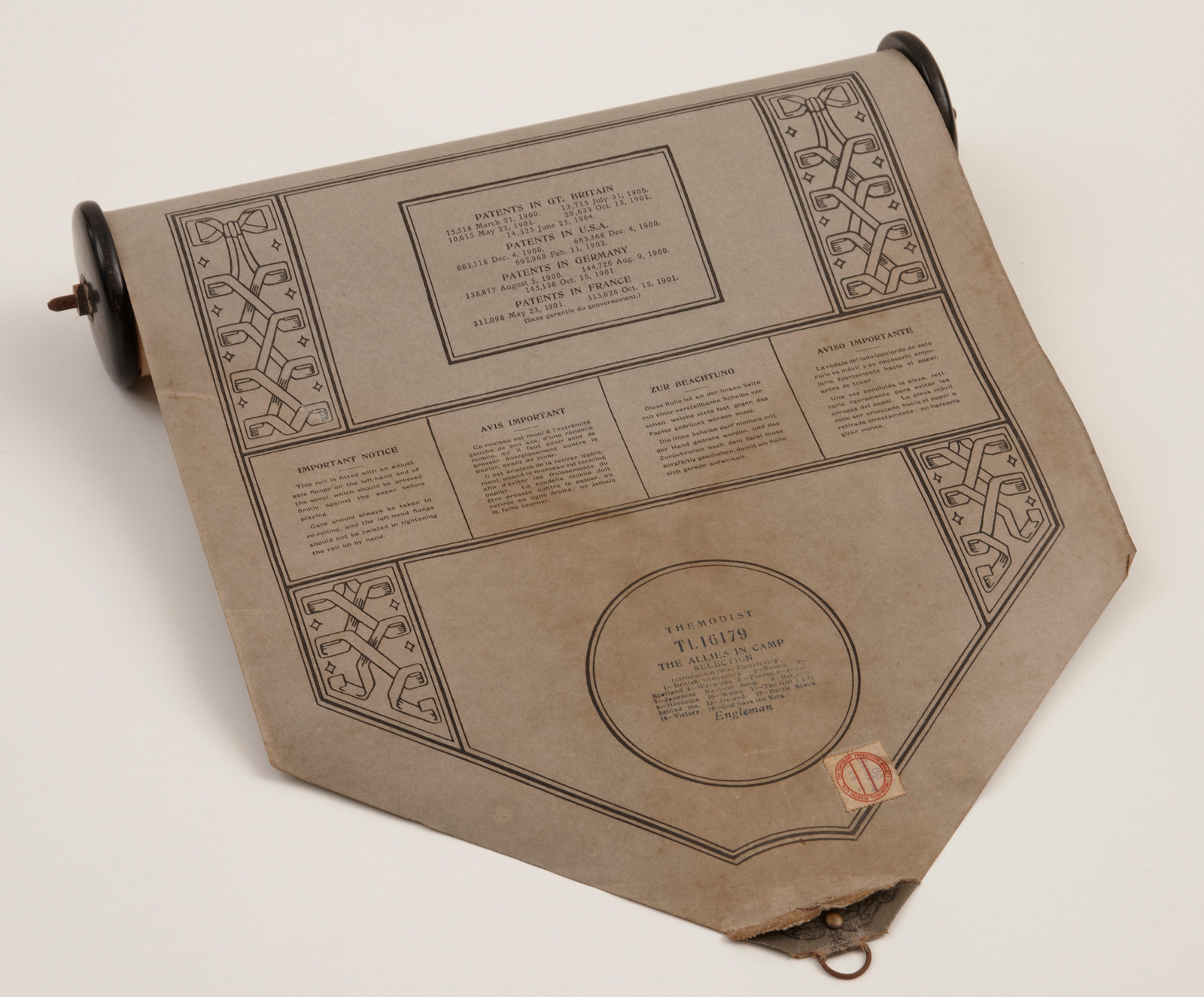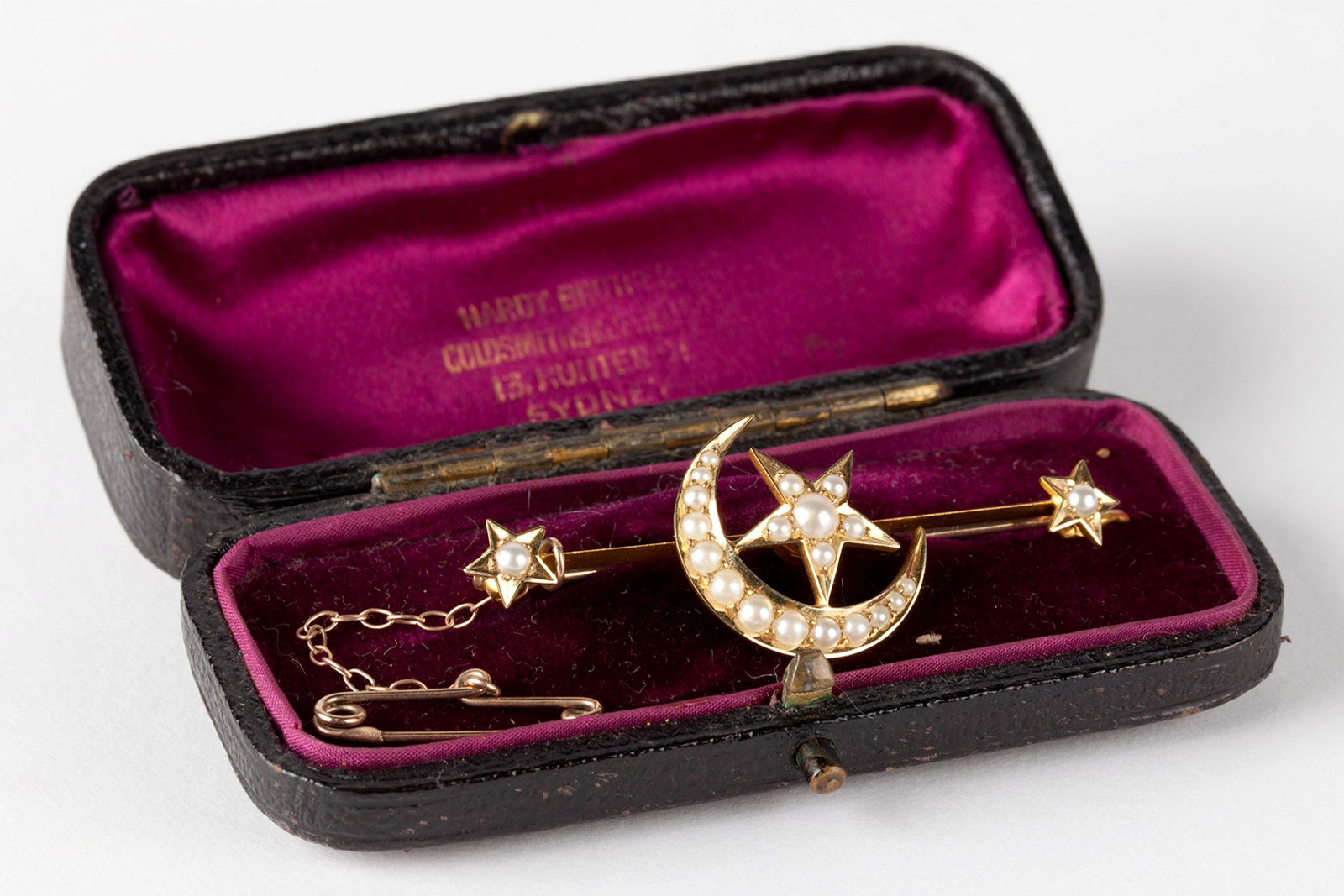If these walls could talk: Rouse Hill House
On the evening of 28 April 1899 the first act of a concert held at Rouse Hill House finished with a song performed by the jovial host, Edwin Stephen Rouse (1849–1931).
The song was from a smash-hit new musical comedy The geisha, a romantic tale set in the ‘Teahouse of Ten Thousand Joys’.1 An enthusiastic performer, Edwin Stephen took to the role with gusto, ‘his make up on the occasion being faithfully exact and causing much amusement’.2
A theatrical family
Edwin Stephen, grandson of the house’s builder, Richard Rouse (1774–1852), wasn’t the only family member to perform that night. His youngest daughter, Kathleen (1887–1932), played ‘Beauty’ in the night’s opener, Beauty and the beast. In the second act she and her mother, Bessie (Elizabeth, nee Buchanan, 1843–1924), played the parts of royal confidante and handmaid in a tableau vivant of the tale of the beautiful but doomed ‘Queen Vishti’.3 Accompanying them on the pianoforte was Kathleen’s sister, Nina (1875–1968).
The beautiful queen and her graceful attendants, their classic dress, the harmonious coloring [sic] of the draperies, and the lovely wreaths and garlands of flowers made an entrenching picture, the effect of which was much enhanced by the use of coloured lights.4
The location of the event – a fundraiser for a new well at the local parsonage – was the arcade linking the service wings behind Rouse Hill House. It was the setting for a series of concerts, both amateur and professional, hosted by Edwin Stephen and Bessie to raise money for local schools and churches.
‘The squire of Rouse Hill’
Born in 1849 to an established family, Edwin Stephen typified the role of Victorian country squire. He was an amiable host and a prominent benefactor of the people in his community, many of whom had a direct economic relationship with the Rouse Hill estate. After the premature death of his father, Edwin (1806-1862), the family’s estates had been divided: Edwin Stephen’s elder brother, Richard (1842-1903), inherited Guntawang cattle station, and the then 12-year‑old Edwin Stephen received the Rouse Hill estate. The livestock on which the family wealth had been built was shared between them, with their mother, Hannah (1819‑1907), appointed as one of Edwin Stephen’s trustees.
During the 1890s and early 1900s Edwin Stephen and Bessie enjoyed the emerging ‘Edwardian Summer’ – until drought, economic crisis and eventually war brought the era to a shuddering close. Edwin Stephen’s passion for champion horse breeding was epitomised in the construction of the Rouse Hill stables in 1876 and by a meet of the Sydney Hunt Club at the property in 1895. The fundraisers held in the same period have the character of country house entertainments, and concert pieces and tableaux set in exotic lands, such as The geisha, were as much a part of the Edwardian Summer as house parties and charades.
Theatricals aside, the arcade was also the setting for family events, most notably the wedding breakfast held for Nina Rouse, who married neighbour George Terry in April 1895. The guests were received in the drawing room before proceeding to the decorated arcade to listen to the speeches and enjoy refreshments.
A common theme in the obituaries published after Edwin Stephen’s death in 1931 was his position as successor to ‘an old pioneer family’. The sesquicentenary of the founding of the NSW colony was fast approaching, and those families who had been long established in the colony were viewed with nostalgic curiosity and as local celebrities.
He was a man of refined nature and of exalted Christian ideals. Though of a retiring disposition, he made many firm friends who will regret to learn of his passing. His hospitality was well-known and for his many acts of benevolence his memory will be revered.’
Footnotes
- The geisha: a story of a tea house, composed by Sidney Jones, libretto by Owen Hall, lyrics by Harry Greenbank. First performed in London, 1896.
- Windsor and Richmond Gazette, 13 May 1899.
- ‘Vishti’ (or ‘Vashti’), the wife of Persian King Ahasuerus, was deposed for refusing to show her beauty to the king’s guests (‘The book of Esther’, Old Testament).
- Windsor and Richmond Gazette, 13 May 1899.
Published on
Related
Browse all
A Gothic Angel
In the drawing room at Rouse Hill your eye is instantly drawn to a small painting on the far wall; a figure of an angel in a shining gilt frame, acquired in the 1870s.

Keeping cool
Shading the face, fanning a fire into a blaze or cooling food, shooing away insects, conveying social status, even passing discreet romantic messages - the use of the fan goes far beyond the creation of a breeze.

WW1
The Allies in camp music roll
Rouse Hill house boasts a fine pianola, a player piano, which came into the house just a few years before the outbreak of World War I

Baubles, brooches & beads
We wear jewellery as articles of dress and fashion and for sentimental reasons – as tokens of love, as symbols of mourning, as souvenirs of travel
